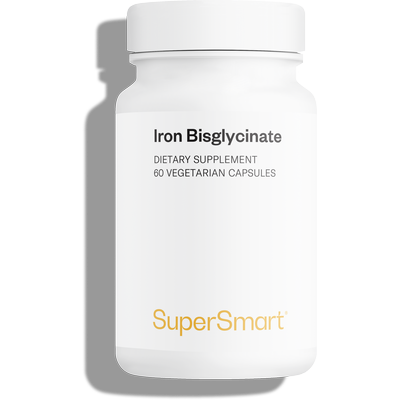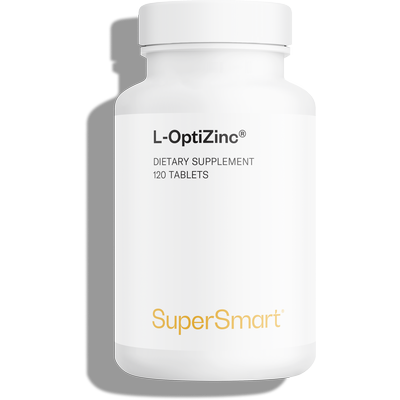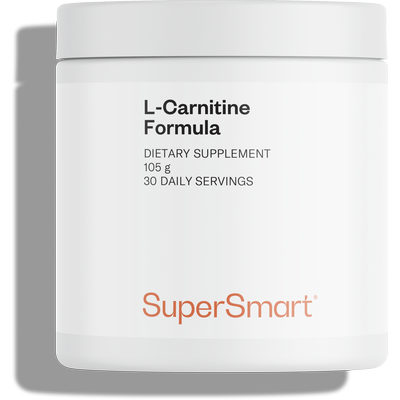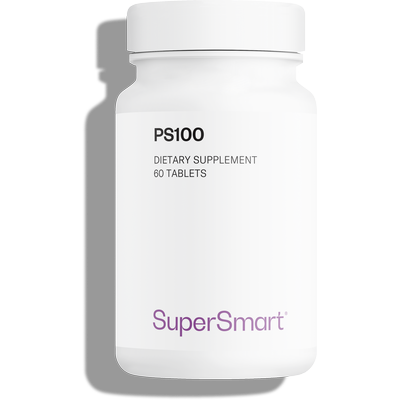07-02-2018
Taking selected minerals and nutrients improves running time
 Can taking a supplement for just one month boost your sports performance? Apparently so, according to a recent study, as long as you choose your micronutrients carefully. The winning combination here was based on three minerals involved in energy metabolism and two nutrients with well-documented effects on sports performance.
Can taking a supplement for just one month boost your sports performance? Apparently so, according to a recent study, as long as you choose your micronutrients carefully. The winning combination here was based on three minerals involved in energy metabolism and two nutrients with well-documented effects on sports performance.The researchers behind the study set out to examine the impact of this blend of micronutrients on female athletic performance. They invited physically-active women who exercised and ran regularly to undergo a three-part test: a 5k run, a 25-minute stationary bike ride and a 90-second step test. The women were then divided into two groups and for one month were given either a placebo or the experimental mineral/nutrient combo.
When the month was up, the women carried out the same tests again in order to compare their pre- and post-supplementation performances.
The results were impressive: while the performance of the women given the placebo had barely changed, those in the supplemented group showed significant improvements. They had shaved almost a minute off their running time, increased their biking distance by 800 metres and their step test by four steps.
What were the five micronutrients that increased sports performance?
1) Zinc, a mineral involved in energy production, but susceptible to deficiency
Zinc is among the minerals of which intake is often below optimal levels1. Mild deficiency is actually common, especially in women, adolescents, the elderly, the overweight, vegans and those who eat a high-carb diet. Soil depletion due to modern farming methods and the refining of cereals are the main culprits, but increasingly prevalent problems with digestive absorption (particularly those associated with Helicobacter pylori) are also implicated2.
How does zinc affect physical performance?
Zinc has a direct effect on aerobic performance as it is part of the antioxidant system3, is present in carbonic anhydrase4, an enzyme that eliminates carbon dioxide, and also participates in energy metabolism5.
To compensate for deficiency or optimise performance, it’s best to choose supplements with high bioavailability such as L-OptiZinc® ;.
2) Copper, a crucial antioxidant trace element
Copper is an essential element in cytochrome c oxidase, the last enzyme in aerobic energy metabolism. It is also involved in the production of haemoglobin and helps fight the oxidative stress responsible for exercise-related fatigue. It’s worth noting that increased ingestion of zinc and copper may improve performance even when intake of these two minerals is adequate6-7.
3) Iron, an essential element for oxygen transport
Iron is essential for production of adenosine triphosphate (ATP), the body’s primary source of energy. It is found in the haemoglobin of red blood cells which transport oxygen to cells, as well as in myoglobin, a substance that helps muscles store oxygen.
It is well-documented that sportswomen are often lacking in zinc8. In order to correct any deficiency and benefit from the effects noted in their study, the researchers recommend taking the glycinate form of iron, which is much better absorbed than other forms, such as that found in Iron Bisglycinate).
4) Carnitine and phosphatidylserine: two conditionally essential nutrients
The researchers chose to add two micronutrients to the three above-mentioned minerals: carnitine and phosphatidylserine.
Essential for energy, carnitine plays a key role in production of ATP: it is needed for healthy function of the heart and muscles which require a constant supply of ‘fuel’ during exercise. Supplementing with carnitine (either in the form of L-carnitine, or a mix of different forms of carnitine) can reduce muscle stress during and after exercise9 and enhance physical performance sup>10.
Phosphatidylserine is a component of mitochondrial membranes. It may also boost performance by reducing the perception of fatigue and stress during exercise11.
It goes without saying that to improve performance, you also need to watch your diet, get enough sleep and where possible, avoid sources of oxidative stress such as smoking, alcohol and pollution.
References
1. Sandstead H, Freeland-Graves J. Dietary phytate, zinc and hidden zinc deficiency. J Trace Elem Med Biol. 2014;28:414–7
2. Armah SM. Fractional zinc absorption for men, women, and adolescents is overestimated in the current dietary reference intakes. J Nutr. 2016;146:1276–80
3. Ozturk A, Baltaci AK, Mogulkoc R, Oztekin E, Sivrikaya A, Kurtoglu E, Kul A. Effects of zinc deficiency and supplementation on malondialdehyde and glutathione levels in blood and tissues of rats performing swimming exercise. Biol Trace Elem Res. 2003;94:157–66.
4. Lukaski HC. Low dietary zinc decreases erythrocyte carbonic anhydrase activities and impairs cardiorespiratory function in men during exercise. Am J Clin Nutr. 2005;81:1045–51.
5. Vallee BL, Falchuk KH. The biochemical basis of zinc physiology. Physiol Rev. 1993;73:79–118.
6. Lukaski HC, Johnson PE. Dietary copper (cu) at the recommended intake decreases muscle cytochrome c oxidase (CCO) activity and alters metabolic responses during exercise in men. FASEB J. 2005;19:A982.
7. Baltaci A, Ozyurek K, Mogulkoc R, Kurtoglu E, Ozkan Y, Celik I. Effects of zinc deficiency and supplementation on the glycogen contents of liver and plasma lactate and leptin levels of rats performing acute exercise. Biol Trace Elem Res. 2003;96:227–36.View Article
8. Beard J, Tobin B. Iron status and exercise. Am J Clin Nutr. 2000;72:594S–7S.
9. Spiering BA, Kraemer WJ, et al. Effects of L-carnitine L-tartrate supplementation on muscle oxygenation responses to resistance exercise. J Strength Cond Res. 2008 Jul;22(4):1130-5.
10. Huang A, Owen K. Role of supplementary L-carnitine in exercise and exercise recovery. Med Sport Sci. 2012;59:135–42.View Article
11. Starks M, Starks S, Kingsley M, Purpura M, Jäger R. The effects of phosphatidylserine on endocrine response to moderate intensity exercise. J Int Soc Sports Nutr. 2008;5:11.View Article
Order the nutrients mentioned in this article
Further reading
14-03-2017
Allergies affect between 30% and 40% of the world’s population. They have multiple causes and take various forms such as food allergies, allergic rhinitis, asthma,...
Read more13-02-2017
If you’re wondering about the benefits of zinc or how effective it is, a study published in The American Journal of Clinical Nutrition in 2016...
Read more29-07-2019
Magnesium has until now been mainly known as an essential mineral for nervous system balance, cardiovascular regulation, muscle function and bone health. Now it seems...
Read more© 1997-2025 Fondation pour le Libre Choix
All rights reserved
All rights reserved
Free
Thank you for visiting our site. Before you go
REGISTER WITHClub SuperSmart
And take advantage
of exclusive benefits:
of exclusive benefits:
- Free: our weekly science-based newsletter "Nutranews"
- Special offers for club members only





















